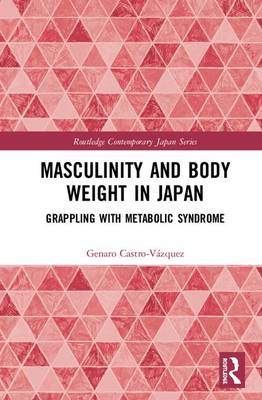
- Retrait gratuit dans votre magasin Club
- 7.000.000 titres dans notre catalogue
- Payer en toute sécurité
- Toujours un magasin près de chez vous
- Retrait gratuit dans votre magasin Club
- 7.000.0000 titres dans notre catalogue
- Payer en toute sécurité
- Toujours un magasin près de chez vous
Description
Drawing on the concept of the somatic self, Castro-Vázquez explores how Japanese men think about, express and interpret their experiences concerning bodyweight control.
Based on an extensive ethnographic investigation, this book offers a compelling analysis of male obesity and overweight in Japan from a symbolic interactionism perspective to delve into structure, meaning, practice and subjectivity underpinning the experiences of a group of middle-aged, Japanese men grappling with body weight control. Castro-Vázquez frames obesity and overweight within historical and current global and sociological debates that help to highlight the significance of the Japanese case. By drawing on evidence from different locations and contexts, he sustains a comparative perspective to extend and deepen the analysis.
A valuable resource for scholars both of contemporary masculinity and of medical sociology, especially those with a particular interest in Japan.
Spécifications
Parties prenantes
- Auteur(s) :
- Editeur:
Contenu
- Nombre de pages :
- 214
- Langue:
- Anglais
- Collection :
Caractéristiques
- EAN:
- 9780367340575
- Date de parution :
- 25-03-20
- Format:
- Livre relié
- Format numérique:
- Genaaid
- Dimensions :
- 155 mm x 239 mm
- Poids :
- 453 g

Les avis
Nous publions uniquement les avis qui respectent les conditions requises. Consultez nos conditions pour les avis.






